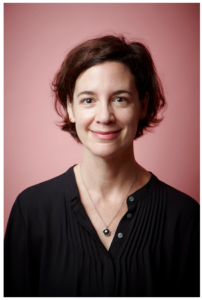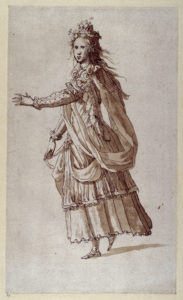By Anam Raheel
LA&PS Professors received more than $2 million in 2020 Insight Grants from SSHRC. Keep reading the #LAPSInsightOut series to learn more about the amazing research happening in our Faculty.

Department of English Professor Deanne Williams has been awarded an Insight Grant of $94,276 from the Social Sciences and Humanities Research Council (SSHRC). This research project, which was ranked second in the competition, is entitled “The Girl Player in Early Theatre.” Williams’ work on Shakespeare and Renaissance girlhood has received international recognition. She is also a member of the Royal Society of Canada and the College of New Scholars, Artists, and Scientists.
For more than a decade, Williams has pioneered the study of girls in medieval and early modern theatre. In 2014, she published her book, Shakespeare and the Performance of Girlhood, and won a five-year Social Sciences and Humanities Research Council (SSHRC) Insight Grant for her project, “Girls and their Books in Early Modern England.” She is a co-founder of York University’s Girls’ Studies Research Network. Her research has been awarded a President’s Research Excellence Award from York University as well as a Killam Research Fellowship from the Canada Council.

“The Girl Player in Early Theatre” sheds light on the cultural prominence of girls in medieval and Renaissance England. This project challenges long-held assumptions about girls’ absence from the stage, and demonstrates that girls were active participants in English dramatic culture from its earliest beginnings. It reveals them taking active, speaking roles in everything from religious drama to court masques, as well as composing dramatic work of their own. At a time when the empowerment of girls has become a social and ethical imperative, this research sheds light on girls’ rich history and longstanding cultural contributions.
Although Williams is the principal investigator (PI) of this project, she notes that the project and its execution are extremely collaborative. Her work is indebted to her ongoing collaboration with John Edwards, the Artistic Director of the Musicians in Ordinary, with whom she has recently produced a series of podcasts that spotlight girls and their music in early modern England. She is grateful, as well, for the valuable contributions of her research assistant and former student, Bernice Neal, now her colleague at York University, who has worked with her on this project for many years. She also acknowledges the tremendous influence of Stephen Orgel, now Jackson Eli Reynolds Professor in Humanities Emeritus at Stanford University, who has supported her research since she was a graduate student, and whose groundbreaking research on the court masque and on Renaissance gender made her own work on Renaissance girlhood possible. She also praises the initiatives of the Records of Early English Drama project, based at the University of Toronto, and the multi-volume research project, British Drama 1533-1642, edited by Martin Wiggins and Catherine Richardson, as essential to her own project.
In each of the five years of the grant, Williams will produce one play associated with girls’ performance, along with her colleagues at the Poculi Ludique Societas at the University of Toronto, and the Musicians in Ordinary. These productions are to be performed live, with student actors, and then recorded professionally. The recordings will then be made available on an open access web archive, which will also bring together documentary evidence of girls’ performance. Making the experience of these little-known plays in production accessible to her students as well as to a wider audience, Williams aims to bring to light this “hidden history” of girls on stage and to generate a better understanding of the historical – and contemporary – significance of girls and girlhood.
